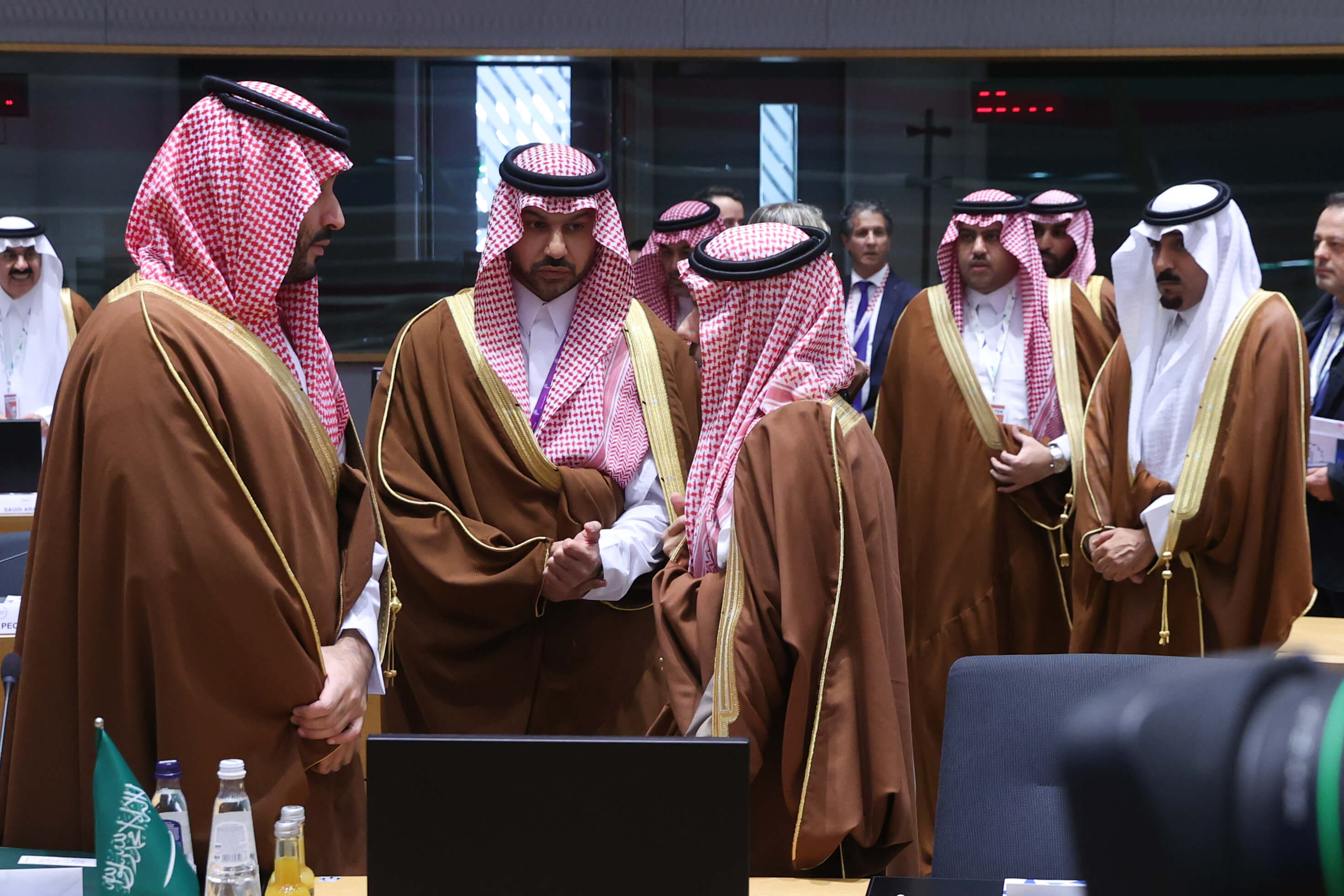The visit of Saudi Crown Prince Mohammed bin Salman to the White House, his first since Donald Trump began his new presidential term, has already been marked by announcements of a largely historic agreement.
Trump's announcement, made on the eve of the visit, that the US will sell Saudi Arabia F-35 fighter jets, has raised expectations not only in the Middle East that a major strategic shift by Washington in the region is underway.
Riyadh is on the verge of fulfilling its long-standing request to the United States to significantly enhance its military capabilities, with the acquisition of stealth fighter jets as its top priority.
However, this agreement and its potential consequences suggest a drastic change in the balance of military power in the region, primarily to the detriment of Israel. But is this really the case?
Washington's statements, confirmed by President Trump ahead of the Saudi leader's visit, indicate that Riyadh is expected to purchase 48 F-35s.
In this way, it would join the group of 20 countries – America's closest allies – that already have this modern aircraft, capable of carrying nuclear weapons, in their arsenals.
Strategic risks
This arrangement presents two main strategic risks for the US and its allies.
The first relates to the potential long-term security of Israel, a key American and Western partner in the Middle East.
In this context, delivering the F-35 to Saudi Arabia is viewed as a shift from the previous strategy of all US administrations, which maintained that Israel should have unquestionable military dominance in the region.
The arrival of the F-35 in Saudi Arabia would disrupt the current security balance
The arrival of the F-35 in Saudi Arabia would disrupt the current security balance. In worst-case scenarios, such as a political shift in Riyadh towards radicalisation or extremists coming to power, Israel would find itself within range of a formidable weapon.
American stealth fighter jets, which could reach Israeli territory in just five minutes, would make defending Israel extremely difficult.
Fears of China
Another dimension of risk, also strategic, involves the fear that delivering the F-35 to Saudi Arabia could allow China to acquire the advanced technology on which this system is based.
F-35 technology could be compromised through Chinese espionage
Citing Pentagon officials who examined all aspects of a potential US-Saudi deal, The New York Times notes the possibility that F-35 technology could be compromised through Chinese espionage or China's security partnership with Saudi Arabia.
These concerns among security experts are undoubtedly supported at the political level, where the rapprochement between Beijing and Riyadh has become evident in recent years.
The highlight of this process was China's mediation in the restoration of diplomatic ties between Iran and Saudi Arabia in 2023, which demonstrated Beijing's strong desire to play a significant role in the Middle East, inspired by the American withdrawal from the region at that time.
Abraham Accords
However, there is much more reason to believe that the Trump administration has considered this important equation and concluded that a deal with the Saudis will outweigh the undeniable risks.
Meeting the Saudi demands for increased deliveries of modern American weapons demonstrates Washington's intention to maintain and strengthen its alliance with Saudi Arabia, which has been tested in recent years.
This deal also indicates that Trump will be even more committed to expanding the group of Arab states joining the Abraham Accords and normalising relations with Israel, with Saudi Arabia being the main "prize" in that campaign.
Israel does not appear overly concerned about the US-Saudi deal
At the same time, Israel does not appear overly concerned about the US-Saudi deal and responded to the F-35 delivery announcements with much more understanding than many Western officials, who are worried about the future of Israel's security.
Israel's ambassador to the United States, Yechiel Leiter, dismisses such concerns and is confident that his country will maintain military dominance in the region.
"There’s no indication that Israel's qualitative edge will be compromised. We don’t live in fear," he says. "Why would I live in fear that our qualitative edge is going to be compromised? There is no reason to assume it will be," Leiter told the Jerusalem Post.
A shift on the horizon
His cold-bloodedness certainly stems from the belief that the US regards its alliance with Israel as an unquestionable and supreme priority in its Middle East policy and that Washington would not take actions that might endanger it.
Another, very practical, reason is that Israel would probably be able to influence the Americans regarding the type of equipment to be installed in the aircraft intended for Saudi Arabia.
 The calculation of Trump and his administration is motivated by the strategic rapprochement between Israel and Saudi Arabia through the Abraham Accords - Prince Mohammed bin Salman
The calculation of Trump and his administration is motivated by the strategic rapprochement between Israel and Saudi Arabia through the Abraham Accords - Prince Mohammed bin Salman
Should the US and Saudi Arabia strike a deal, Riyadh could receive the first F-35 in six years.
For Israel, this provides sufficient time to anticipate normalising relations, making the projected risk acceptable.
The calculation of Trump and his administration is obvious. It is primarily motivated by the strategic rapprochement between Israel and Saudi Arabia through the Abraham Accords, which was frozen by the war in Gaza.
An equally important motive is retaining Riyadh within the US partnership orbit, distancing it from Chinese influence, which has been very strong and visible in recent years.
The current US-Saudi talks may therefore mark a significant shift in stabilising the situation in the Middle East.
Although the deal involving the F-35 may appear to disrupt the security balance in the region, the American approach should produce the opposite effect – strengthening mutual relations between the regional leaders, Israel and Saudi Arabia, while simultaneously elevating their alliance with the US to a higher level.